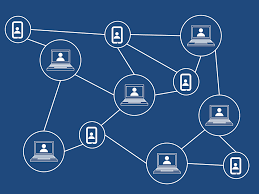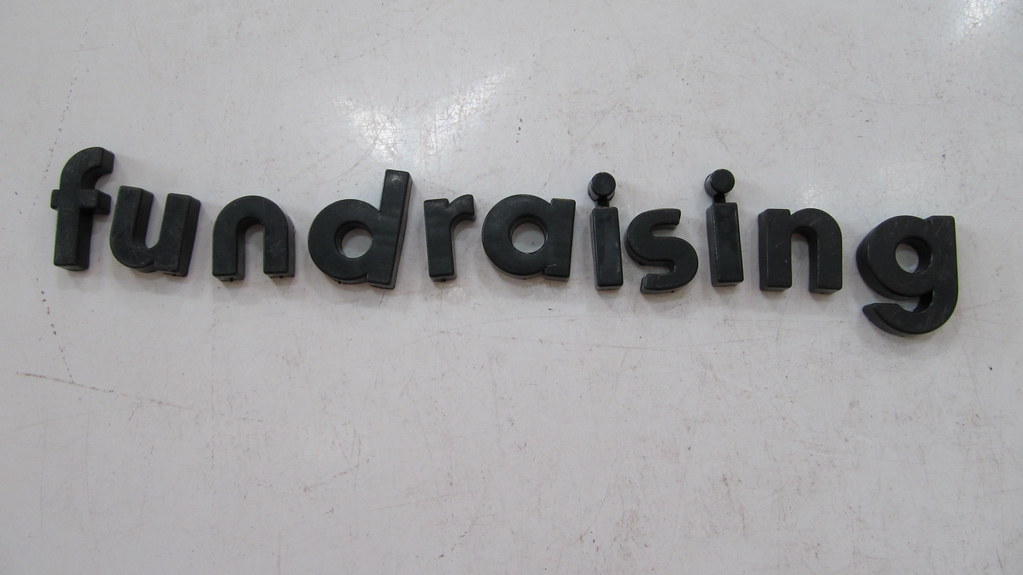Okay, true confession: cryptocurrency donations was one of those topics I wanted to research but kept putting off. I think a lot of nonprofit professionals are in the same boat–we know cryptocurrency may affect our fundraising operations but it seems a little abstract right now. The issue started to feel more immediate when Facebook announced that it was going to release a cryptocurrency called the Libra because many nonprofits rely on Facebook for marketing and fundraising. If you’re wondering about Facebook Libra but don’t have time to read umpteen articles and think pieces about it, here is a breakdown of how this new technology could affect philanthropy.

First, a quick primer on cryptocurrency and blockchain technology:
- Cryptocurrency is a currency that is created and held electronically and regulated by encryption techniques.
- Blockchain is new way of verifying and recording exchanges between users online. It’s a sophisticated digital accounting ledger that is virtually unhackable. Blockchain technology is decentralized and stores information permanently across a network of computers. Once information enters the blockchain ledger, it cannot be removed.
- Cryptocurrencies use blockchain technology to record and facilitate financial transactions.

- Cryptocurrency Pros:
- Reduces cost of transactions.
- Facilitates financial transactions across borders.
- Could offer stability and financial inclusion in countries where the currency is unstable and banking is inaccessible to poor consumers.
- Blockchain technology means that transactions are more secure than on other online payment platforms, such as PayPal.
- Cryptocurrency Cons:
- Cryptocurrency has been used by criminals and extremists because transactions are not regulated by governments or companies and many popular cryptocurrencies, such as Bitcoin, facilitate anonymous transactions that are difficult for law enforcement to track.
- Cryptocurrencies that are not backed by a trusted entity or asset can fluctuate wildly.
- The process of confirming cryptocurrency transactions can be too complicated for ordinary companies and people, thus giving rise to large entities that perform this process and become the de facto controllers of the currency.

So, what is Facebook Libra?
- Facebook Libra is Facebook’s proposed cryptocurrency. In 2019 the company publicly announced its intention to create a cryptocurrency and is in the process of negotiating with financial regulators and lawmakers.
- Users can buy in Libra units online or at local exchange points like grocery stores, and spend it using blockchain wallet apps (including Facebook’s own wallet app) that will be built into WhatsApp, Messenger, and the Libra app.
- Facebook won’t fully control Libra but unlike cryptocurrencies such as Bitcoin, Libra is not fully decentralized. The cryptocurrency will be governed by the Libra Association, a separate legal nonprofit entity. Facebook, along with other founding members of the Libra Association, gets one vote in the organization.
- Similar to central banks, the Libra Association will keep reserves. The reserve is made of the world’s most stable currencies (USD, Euro, Japanese yen, etc.). When users cash in, their money goes into the reserve. Each member of the Libra Association who has contributed initial reserve assets will earn money through interest on the money that users cash in.
Concerns specific to Libra include:

- The Libra ecosystem will be completely open to use and build and the Libra Association will not vet app developers, which means that bad actors could prey on users.
- Like other cryptocurrencies, Libra could facilitate money laundering and other criminal transactions.
- If Libra is adopted on a large scale, the Libra Association’s policies could have a macroeconomic impact through that the world and could impact national sovereignty.
How could Facebook Libra affect fundraising?

- Libra could simplify
donations from international prospects.
- If Libra payments are accepted across borders with low foreign transactions fees this provides a much easier avenue for donations.
- However, this is also legal gray area–depending on the jurisdiction, there may be restrictions on international donations and it is not clear how those laws would be enforced with Facebook Libra.
- Libra could facilitate
more anonymous giving.
- Libra transactions will be public but pseudonymous. It is not clear how much information on a user would be available to recipients.
- Like other forms of anonymous giving (DAFs, etc.) Libra could appeal to many donors and may encourage gifts from prospects that would otherwise not give, but it also this limits the amount of cultivation, re-solicitation, stewardship, due diligence, and general prospect research that could be done on donors.
- Libra could increase
transparency and trust in charities and fundraising operations.
- Donors can easily access the details of the projects which they are supporting and track their donations anytime through apps, websites, and online reports. Charity corruption is a major concern in China and was one of several factors that led to the explosion of WeChat as a philanthropic giving vehicle.
- This could benefit nonprofits and causes that are new or not well-known to donors, since donors could feel more secure about their payments.
- Libra could expedite
payments from donors.
- Libra’s main selling point for users in developed countries is low transaction fees, speedy transactions, and the ability to engage in “micro-transactions” (buying a song for a few cents, etc.). This could motivate more prospects to give and opens up new giving opportunities. For example, could an organization fundraise using micro-transactions?
- One of the other reasons that WeChat exploded as a giving vehicle in China is that the WeChat app is ubiquitous–it made it very easy for donors to quickly give through the same platform that they were using for social media, messaging, etc. Facebook’s biggest advantage as a cryptocurrency developer and promoter is its ubiquity.
If you would like to learn more, here are a few sources to get you started:
- A more detailed explanation of cryptocurrency: https://www.investopedia.com/terms/c/cryptocurrency.asp
- A more detailed explanation of how Facebook Libra works: https://techcrunch.com/2019/06/18/facebook-libra/
- A concise summary of the pro-cryptocurrency position. The presenter is an investor in a cryptocurrency transaction platform. https://www.youtube.com/watch?v=97ufCT6lQcY&app=desktop
- This article from The Atlantic is one of the most complete summaries of the anti-Facebook Libra position. It also touches on general concerns about cryptocurrency. https://www.theatlantic.com/ideas/archive/2019/06/dont-trust-libra-facebooks-new-cryptocurrency/592450/
- The Southern Poverty Law Center’s review of the connection between cryptocurrency and hate groups: https://www.splcenter.org/bitcoin-and-alt-right
About the Author:
Amelia Aldred is a lead analyst on the prospect research team at the University of Chicago and the administrator of The Philanthropologist. Amelia specializes in strategic research and communications on philanthropic trends and has taught seminars on international philanthropy, industrial research, and internal communications at CASE (Council for the Advancement and Support of Education) and APRA (Association of Professional Researchers for Advancement). All opinions are her own. For more information about Amelia’s nonprofit experience, click here.